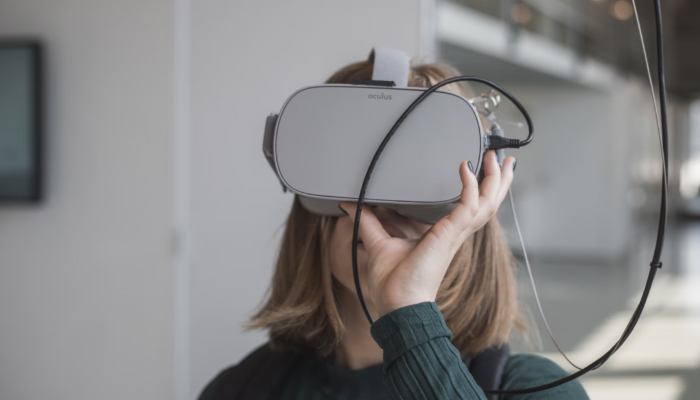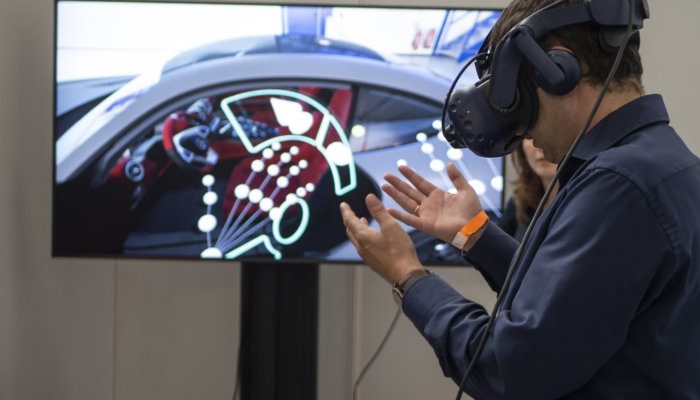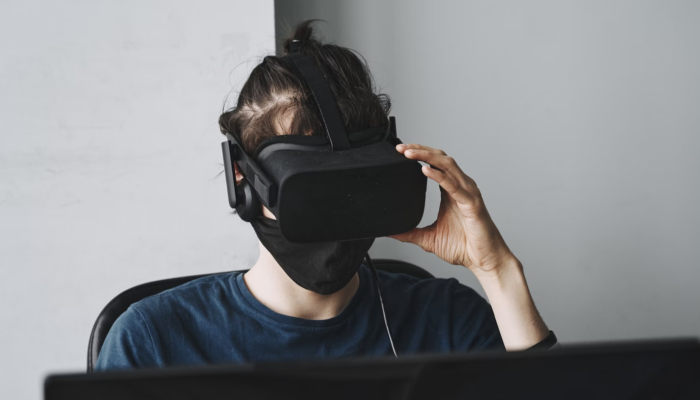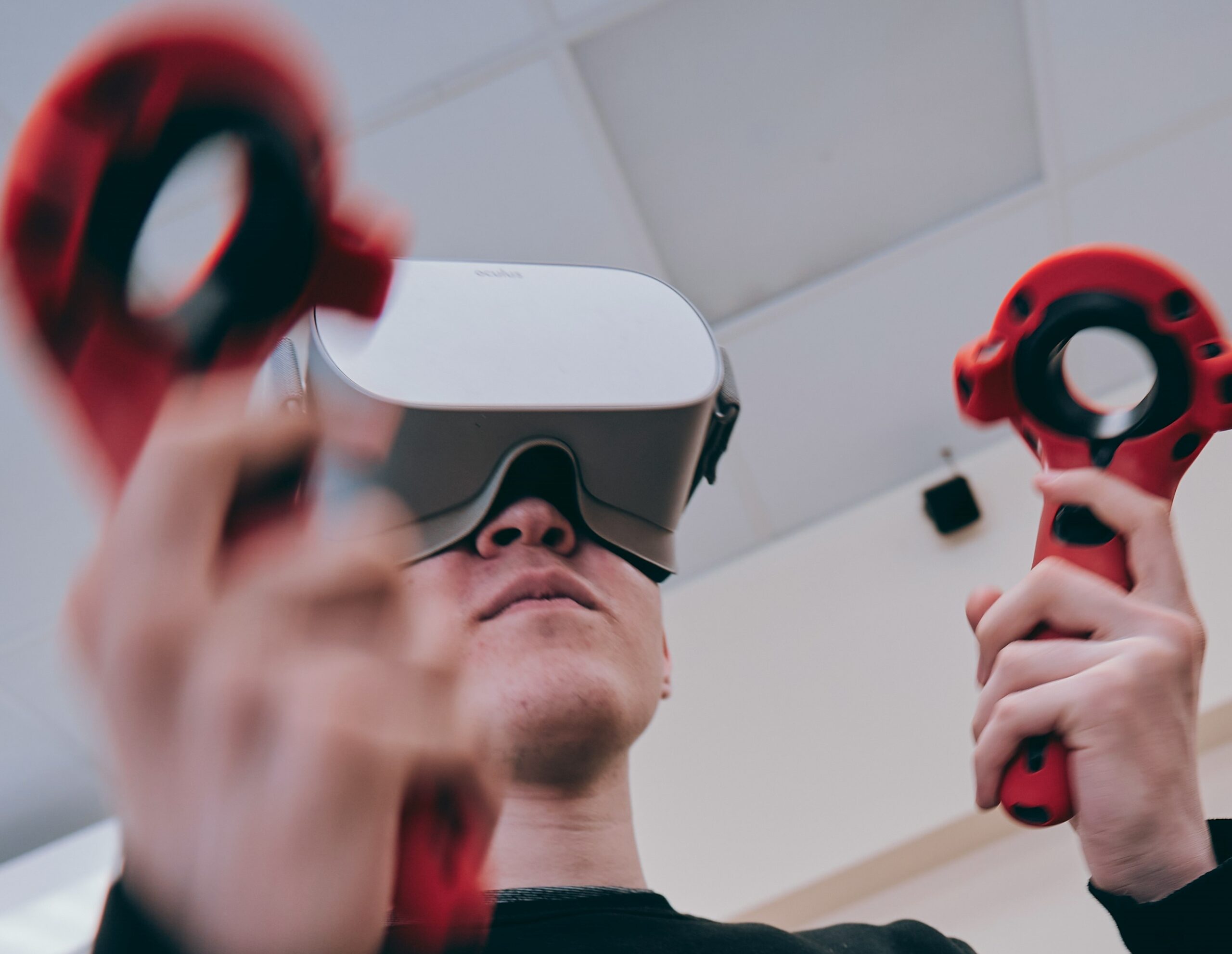Uzone.id – The convergence between the world of technology and entertainment through Virtual Reality (VR), Augmented Reality (AR), and Artificial Intelligence (AI) have blurred the boundaries between the physical and digital worlds. All three have changed the way we communicate, learn, work, play, and interact with the world.
AR and VR allow users to interact with digital content, so many gaming companies invest in developing these technologies. At the same time, AI has changed how users work and live by automating tasks and providing previously impossible insights.
In this article, let’s discuss the new reality of the role of Virtual Reality (VR), Augmented Reality (AR), and Artificial Intelligence (AI) in games and sports.
Virtual Reality (VR)

Virtual Reality (VR) presents an imaginary environment that allows users to experience a simulated experience created by a computer. VR allows users to experience and interact with 3D environments in ways impossible in the real world.
Users can enjoy this immersive experience by using specialized equipment, such as headsets capable of tracking head movements to customize the display in the virtual environment and controllers that interact with objects and elements in the virtual world.
Applying VR in gaming has revolutionized the unimaginable gaming experience and will continue to drive various benefits. Not only does it make the gaming world cooler, but VR’s immersive, interactive, and user-engaging nature has changed how players enjoy video game games.
VR has allowed players to enter the world of games. The game feels more real with its advanced graphics display, spatial audio, and 3D environment. The addition of tracking technology that requires players to move to control objects has improved the experience.
As VR technology continues to evolve, the limits of what can be achieved in games will expand, making VR an essential part of today’s games. Games like Beat Saber, Half-Life: Alyx, and The Elder Scrolls V: Skyrim VR have demonstrated the potential of VR to revolutionize gaming.
Augmented Reality (AR)

Augmented Reality (AR) is a technology that allows users to combine real-world elements with digital objects, such as 3D objects, text, sound, or visual data, in real-time. Unlike VR, which creates a digital world separate from the physical world, AR only adds digital elements to the real world without eliminating or replacing objects around it.
Currently, AR is used in many sectors, including games and sports. Pokémon GO and Minecraft Earth are very popular examples of games that apply AR. Both games have created a gaming experience that combines real-world and virtual elements.
In addition, AR is also used as a tool for training and visualizing athletes. In training, AR can create match simulations so athletes can practice with various scenarios. Coaches can also use AR to visualize game strategies in 3D. With AR, coaches can project formations and lanes so players can adjust quickly.
Not only that, AR can also project data directly onto the athlete’s body or equipment, including data on speed, strength, and angle of movement, which allows coaches and athletes to monitor their performance live. For example, in games such as basketball and soccer, athletes’ positions and movements can be overlayed with 3D visualizations to analyze tactics, movement paths, and movement efficiency.
In the world of sports media, AR can help athletes with injury rehabilitation. With AR, athletes can view visual instructions and start applying recovery exercises tailored to their individual needs. In addition, AR will also provide a more fun and interactive physical therapy experience through 3D visualization.
Artificial Intelligence (AI)

Artificial Intelligence (AI) is a system that can think, learn, and solve problems automatically without explicitly programming for each task. In its development, AI uses several essential technologies, such as machine learning, deep learning, and neural networks.
The presence of AI has made significant advances in the world of gaming and sports. In games, AI has allowed the development of more dynamic and variable gameplay that can respond directly to player choices and actions, making the gaming experience more immersive and personalized.
In open-world games like The Elder Scrolls V: Skyrim or Red Dead Redemption 2, AI allows NPCs (non-playable characters) to realistically interact with players and adapt their behavior to changes in the game world. Games like The Sims and Minecraft use AI to create a more vibrant ecosystem within the game world.
AI technology has also advanced the gaming industry in sharing ways, including improving enemy AI, making NPCs feel more lively and interactive, and creating more dynamic and responsive worlds. The Left 4 Dead game is one of the games that has used AI Director to modify their game.
From a business perspective, AI has helped game distribution platforms such as Steam and PlayStation to provide more precise game recommendations based on user preferences and behavior patterns.
AI affects many aspects of the sports industry, not just the gaming industry. Starting with helping to improve athlete performance, strategize the team, analyze data, and improve the fan experience.
Today, AI has become an essential key in collecting and analyzing data to improve the performance of athletes and teams. AI uses wearable devices and sensors to monitor athletes’ physical condition during training and matches.
Using computer vision and machine learning algorithms, AI can analyze match video footage, track player and ball movements, and assess game patterns, allowing coaches to analyze tactics, strategies, and mistakes players make.
AI has been used by clubs that oversee athletes to create a more personalized experience for fans. With an app designed for club fans, AI will analyze users’ preferences to suggest match highlights based on favorite teams or players. One application that has implemented the concept is the ESPN or FuboTV sports application.
(Aisyah)














